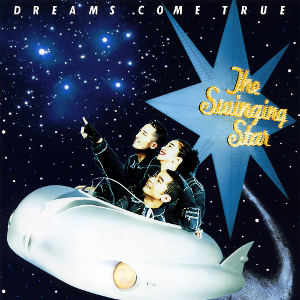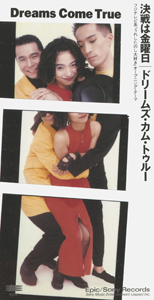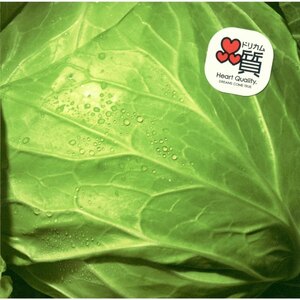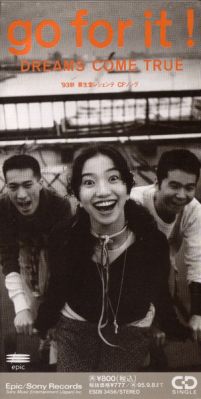Dreams Come True is a Japanese pop band formed in 1988 by Miwa Yoshida, Masato Nakamura (bass) and Takahiro Nishikawa (keyboards). Nishikawa left in 2002 to pursue a solo career.

"Addicted to You" is a song by Japanese-American recording artist Hikaru Utada from her second studio album Distance (2001). It was released as the album's lead single on November 10, 1999 by EMI Music Japan. "Addicted to You" was written by Utada and produced by Jimmy Jam & Terry Lewis; this is Utada's first collaboration with American producers and composers. The single artwork was shot by American photographer Richard Avedon and features two black-and-white figures of Utada. Musically, "Addicted to You" is an R&B song.

"Can You Celebrate?" is the ninth single by Japanese recording artist Namie Amuro. Serving as the second single from her third studio album Concentration 20, it was released on February 19, 1997, by Avex Trax. Its lyrics and composition was handled solely by Tetsuya Komuro. Musically, "Can You Celebrate?" is a power ballad that incorporates gospel and classical music. Lyrically, the song express a longing for a deep and lasting love, asking if the listener can celebrate and kiss the singer.

"You're My Sunshine" is the sixth single by Japanese singer Namie Amuro. It was released on June 5, 1996, by Avex Trax and was produced by Tetsuya Komuro. The song was the image song for the Bristol-Myers Squibb "Sea Breeze '96" commercial in which she appeared. The version used in the initial commercial had a different tempo and tune from the CD package version. The following year, 1997, she was used for the second consecutive year in a "Sea Breeze" commercial, this time using her hit song "How to Be a Girl".

Yureru Omoi is the fourth album by Zard and was released on July 10, 1993 under B-Gram Records. This is the first original album released in about 10 months since the last album Hold Me. It is also the first album by Izumi Sakai as a solo unit since her first album Good-bye My Loneliness. The release was postponed several times, but was finally released on July 10. In addition, the order form at CD stores indicated that the album title was "Kimi ga Inai" and that it would be released simultaneously with the single "Yureru Omoi" on May 19.

The Swinging Star is the fifth studio album by the Japanese band Dreams Come True. It was released on November 14, 1992, by Epic Records Japan. It was their first release in about a year since their previous album, Million Kisses (1991). All of the album's lyrics were solely penned by frontwoman Miwa Yoshida while its songs were arranged by her bandmate Masato Nakamura. The Swinging Star is a doo-wop, pop, blue-eyed soul, and R&B record, with elements of jazz and disco music.

"Don't Cry Anymore" is Japanese singer-songwriter miwa's debut major label single, released on March 3, 2010. It was used as the Nana Eikura starring drama Nakanai to Kimeta Hi's theme song. It was certified gold by the RIAJ for full-length cellphone downloads.

Diamond is the debut Japanese studio album by South Korean girl group 4Minute. It was released in Japan on December 15, 2010 in two editions: CD only and limited edition CD+DVD. The limited edition includes a 52-page photo book that highlights some of the group's single releases and Japanese debuts. The album peaked at number 27 on Japan's weekly Oricon Albums Chart and sold over 12,000 copies.

"Truth" is a song by South Korean pop-rock idol band CNBLUE. It was released on April 23, 2014, as their seventh single under Warner Music Japan and 10th single overall in Japan. The song was written by Jung Yong-hwa and miwa, along with Ryo and Lee Sang-ho.

"Love Love Love" is a song recorded by Japanese band Dreams Come True for their eighth studio album, Love Unlimited ∞. It was released as the album's lead single by Epic/Sony Records on July 1995. It is the theme song to the TBS drama series Aishiteiru to Itte Kure. The single's B-side, "Arashi ga Kuru", was also featured throughout the series' twelve episodes. With over two million copies sold, "Love Love Love" is the tenth best-selling Japanese single of all time and remains the band's most successful single.

Love Unlimited∞ is the eighth studio album by Japanese band Dreams Come True. It was released in Japan and throughout Asia on April 1, 1996, through Epic Records Japan, ultimately being their last album released under the label. The record's lyrics were entirely written by Miwa Yoshida herself, while the song's compositions were handled by her alongside bandmates Takahiro Nishikawa and Masato Nakamura. Musically, Love Unlimited∞ is a pop and R&B album and lyrically focuses on themes of love. Two music videos are included on the CD-EXTRA of the Japanese version only. They are not included on the local versions sold in Taiwan, Hong Kong, etc. The slogan on the obi is, as the title suggests, "Love has no limits."

"Tsuretette Tsuretette" is a single by Japanese pop duo Dreams Come True, from their fifteenth studio album, Do You Dreams Come True? (2009), released on November 12, 2009, through Universal Music Japan. The title track was written by the band's singer and songwriter Miwa Yoshida, and produced by Masato Nakamura. The single debuted at number one on the Oricon Singles Chart, becoming the group's first single to top the chart in ten years. It has sold about 86,000 copies in Japan and has been certified Gold by the Recording Industry Association of Japan (RIAJ).

"White" is a song by South Korean rock band CNBLUE. It was released on April 8, 2015, as their ninth single under Warner Music Japan and 12th single overall in Japan. The song was conceived by guitarist Lee Jong-hyun in midst of the CNBLUE 2014 Arena Tour "Wave" concerts. The song was written by band members Lee Jong-hyun and Jung Yong-hwa, in addition to miwa. Portraying a message of hope, "White" combines the band's rock style and infuses a synthesizer to create a sound distinctive from the band's previous work.

"Suki" is a song recorded by Japanese band Dreams Come True for their seventh studio album, Delicious (1995). It was released as the album's lead single by Epic/Sony Records on November 4, 1994. An English version of the song, dubbed "Suki ", was featured on the 1996 film Shichigatsu Nanoka, Hare, starring Alisa Mizuki and Masato Hagiwara.

"Kessen wa Kinyōbi" is a song recorded by Japanese band Dreams Come True for their fifth studio album, The Swinging Star. It was released as the album's lead single by Epic/Sony Records on September 19, 1992. It served as the opening theme to the CX music show Ureshi Tanoshi Daisuki - Friday Night Live, on which the band were regular cast members. The single's coupling song, "Taiyō ga Miteru" was used in the advertising campaign for Fujifilm's Fujicolor Super HG 400 film.

"Lady Diamond" is a song by Japanese idol group Sexy Zone. It was released on April 11, 2012, as its second single under Pony Canyon. The song was written by Gorō Matsui and Kōji Makaino. All tracks on the single were used as theme songs for various television series.

South Korean boy band NCT Dream have released three studio albums, two reissues, one live album, five extended plays, one single album, and fifteen singles. A sub-unit of the boy band NCT, the group debuted in 2016 with the digital single "Chewing Gum", which was later featured on their first single album The First, released alongside its lead single "My First and Last" in 2017. Later that year, they released their first extended play, We Young, alongside its lead single of the same name. In 2018, they recorded the single "Go" for NCT's first studio album as a complete group, titled NCT 2018 Empathy. Their second extended play, We Go Up, was their first entry on the Oricon Albums Chart, charting at number 11. It was released in September 2018 alongside its lead single of the same name. The following year, they released their third extended play, We Boom. It spawned one single, "Boom". Their first Japanese-language extended play, The Dream, released in January 2020, was their first release to chart atop the Oricon Albums Chart. In April 2020, they released their fifth extended play, Reload. It spawned one single, "Ridin'".

Magic is the sixth studio album by Japanese pop band Dreams Come True. It was released on December 4, 1993 by Epic Records Japan. Musically, it is a pop album with funk, jazz, R&B and doo-wop influences from Western music. Lyrics were solely provided by frontwoman Miwa Yoshida while its songs were arranged by her alongside her bandmate Masato Nakamura.

Delicious is the seventh original studio album released by Japanese pop band Dreams Come True. It was distributed in Japan and across Asia on March 25, 1995, through Epic Records Japan. The record was released 1 year and 3 months after their previous album Magic. This is the first time that Dreams Come True, who have been releasing albums at a pace of one a year, have released an album that came out more than a full year after its predecessor. Delicious was also their first original album with 13 songs. The MiniDisc edition of the album was released on March 18, 1995, one week in advance of the CD and cassette edition. Delicious is primarily a pop record with influences of funk, R&B and tango.

"Nando Demo" is the 35th single by Japanese pop band Dreams Come True, released on February 16, 2005, by Universal Music Japan. It was the group's first single in four months since their last single, "Love Letter," and was later included as an album version on their 13th album, The Love Rocks. Both songs were eventually included in the all-time best album Dreams Come True The Best! Watashi no Dorikamu.



















